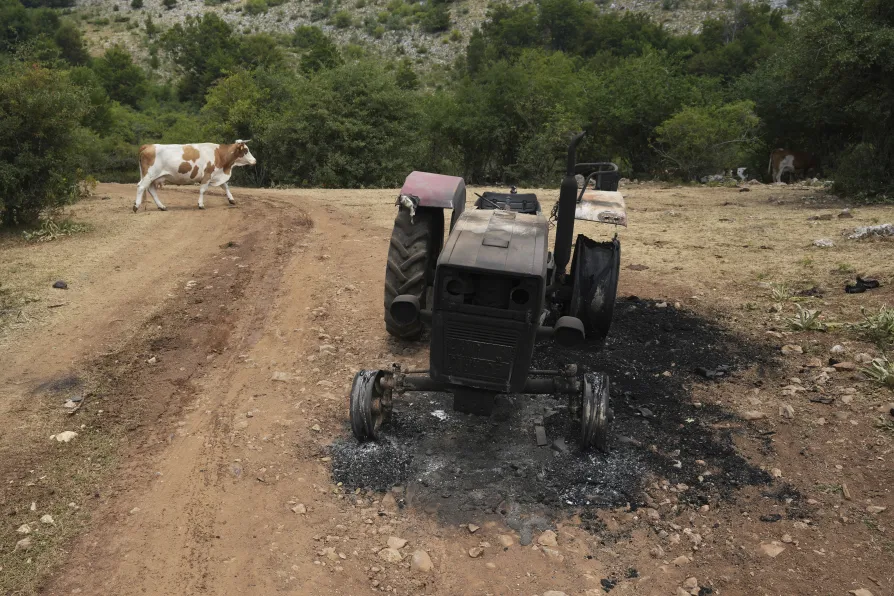
 A cow heads down the mountain to seek water during a severe drought on a mountain Suva Planina, in southeast Serbia, July 17, 2025
A cow heads down the mountain to seek water during a severe drought on a mountain Suva Planina, in southeast Serbia, July 17, 2025
THE climate crisis is driving food price spikes around the world, with the poorest worst hit, international scientists warned in a damning new report today.
Researchers linked extreme climate events to sharp increases in the prices of key food items, including rice, corn, cocoa, coffee and potatoes.
The report highlighted a 280 per cent spike in global cocoa prices in April 2024 after a heatwave in Ghana and the Ivory Coast, and a 300 per cent rise in the price of Australian lettuce following floods in 2022.
In most cases, price hikes followed heatwaves, including a 70 per cent increase in cabbage prices in South Korea in September 2024, a 48 per cent jump in rice prices in Japan during the same month and an 81 per cent rise in potato prices in India in early 2024.
Droughts also contributed to rising prices, such as the 2023 drought in Brazil that preceded a 55 per cent increase in global coffee prices, and a 2022 drought in Ethiopia that was followed by a 40 per cent rise in overall food prices there the following year.
The study was published ahead of next week’s United Nations Food Systems Summit.
It found that spikes in food prices have a wider economic impact, making it harder for governments to control inflation and lower interest rates.
The report also suggested that high inflation could influence election results, noting that high living costs have already played a role in democratic outcomes.
Report lead author Maximillian Kotz, from the Barcelona Supercomputing Centre, said: “It is clear the cost of living played a role in last year’s election in the US.
“These effects are going to continue to become worse in the future.
“Until we get to net zero emissions, extreme weather will only get worse, but it’s already damaging crops and pushing up the price of food all over the world.
“People are noticing, with rising food prices number two on the list of climate impacts they see in their lives, second only to extreme heat itself.”
He added that low-income families are especially affected and are often forced to rely on cheaper, less nutritious food.
The International Court of Justice is expected to deliver a landmark advisory opinion tomorrow on states’ legal obligations to address climate change.

From summit to summit, imperialist companies and governments cut, delay or water down their commitments, warn the Communist Parties of Britain, France, Portugal and Spain and the Workers Party of Belgium in a joint statement on Cop30

When it comes to extreme weather events, from wildfires to flash floods, it’s firefighters who are on the front line of defence, but services have been cut to the bone, and government is not taking seriously its responsibility for the environment, says STEVE WRIGHT












